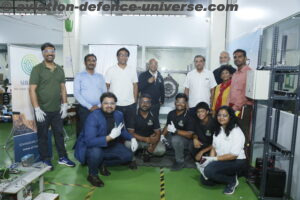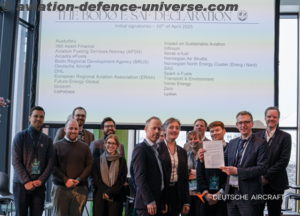Bordes, France. 10 September 2021. Safran Helicopter Engines recently performed a world first at its Bordes facility (Pyrénées-Atlantiques, France); a helicopter engine run on 100 percent sustainable aviation fuel (SAF). During the test, a Makila 2 ran on a biofuel produced by TotalEnergies from residues and waste from the circular economy, specifically used cooking oil.
A test campaign will now evaluate the operational impact of using only SAF on a helicopter engine. To do this, the engine manufacturer will utilize a Safran Tech special facility known as “Bearcat” (Banc d’Essai Avancé pour la Recherche en Combustion et Aérothermique des Turbomachines), an advanced test bench for turbomachinery combustion and aerothermal.
Franck Saudo, CEO of Safran Helicopter Engines says, “after the first flight of a rescue helicopter using 40% SAF in June, and the fuel’s gradual introduction for engine tests at our sites, we are now taking a new step toward using fuel made entirely from renewable sources. These tests are a key step in the realization of future test flights with our helicopter partners. By expanding the use of sustainable fuels among helicopter operators and at our sites, we will significantly reduce CO2 emissions over the entire life cycle of our products”.
“By offering our customers like Safran sustainable aviation biofuels produced in France, we are meeting a strong demand from the aviation industry to reduce its carbon footprint. The development of biofuels is one of the main thrusts of TotalEnergies’ multi-energy strategy to meet the challenge of decarbonizing the transportation sector. This is fully in line with the Company’s climate change ambition of achieving carbon neutrality by 2050,” said Virginie Merini, Senior Vice President, Renewable Fuels at TotalEnergies.
Safran engines are already certified to operate with up to 50% SAF. With 100% incorporation, the lower carbon footprint of these fuels will reduce CO2 emissions by up to 80%.































































































































